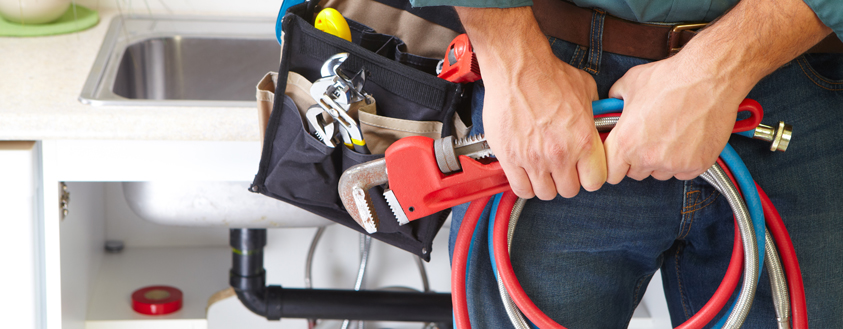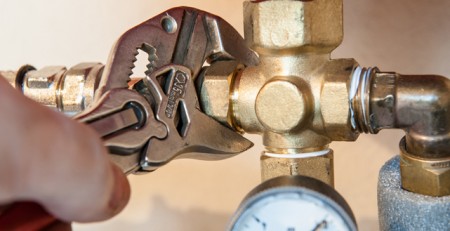What to Consider When Selecting a Plumbing & Heating Contractor
When you need someone to take care of your plumbing, heating or microgeneration systems you ought to hire a contractor just to make sure the work is done properly. Here are some steps that will help you find the right person for the job.
Find the right contractor
- Investigate the company you plan on hiring and see if this is the best choice for you. Most companies have different scope of services,]. Some specialize in only one area, and others offer you many to choose from, which is why you should make sure you go with the one that provides the services you need.
- Check if they are members of any trade association. If they are it is usually a good sign because most trade associations have strict regulations and the members need to comply with the required standards.
- See if you can find someone who has worked with this company before. The “word of mouth” recommendations can help you conclude if the company is reliable and if they can deliver good results.
- Ask if the company has previous experience in working on similar projects. Look into their qualifications and the experience they have in the area you need. If they are not part of any trade association ask them to give you references from previous clients. Search the net and read the customers’ feedback.
- Confirm their credentials. Make sure the contractor you choose has a physical address, official building where you can go in case you need to get some additional information or discuss the project details. Get their phone number so you can call them in case there is an emergency.
Define the scope of your project
- Very often some of the biggest problems occur when the client is not sure what they want and fail to ask the right questions before hiring the contractors. Before the project starts be very clear about the price. Provide the details for your project as this is the only way you can get a good estimate on the cost. Better yet, get them to give you the offer in writing and ask them to include all relevant information and describe the work they plan on doing.
- Try to find at least three quotations from different companies. Give each company exactly the same details so you can compare the offers they provide. Please note that the cheapest quote is not always the best solution. Ask them why their rate is so low, are there any hidden costs?
- Is the VAT included in their quote? What might seem as a reasonable price at first can easily become expensive once you add 20% VAT.
- See if they offer any guarantees. Confirm the scope of the guarantee and the period it covers.
- Always agree the price upfront. If their rate is too high try to negotiate. If there is no room for negotiations, look for another company. Don’t choose the expensive one in the hope they will change their mind about the rate, you might get yourself into big trouble.
- Set the dates. Determine the start date, end date and the duration of the project. For bigger projects it might be a good idea to include the dates in the contract.
- What documentation do you need? Before the work starts check which document you need and who is responsible for taking care of that. If the contractor agrees to prepare the documentation confirm that the service is covered with the original fee.
- Is the company reliable? The contractor should always come on time, never reschedule or cancel your meetings. They need to investigate things in details and measure everything carefully. They should listen to your ideas and understand what you need. Follow your instincts and if things don’t look right, find someone who might be a better fit.
Final steps
Once you have determined the scope of the project and found the right contractor, there are some things you need to do before you start work.
- Make a formal contract. Ask them to give you the quotes in writing so you can agree the big things first. Then make a more detailed contract that will cover every aspect of the work. Avoid verbal agreements as in case of dispute you won’t stand any chance in court. Indicate the start and end date, state your responsibilities when it comes to moving furniture, ask whether they will protect your home from damage, check if they are insured, and see if there is something that is not included in the contract (like boxing or redecorating). Don’t forget to confirm the payment schedule and always take receipts.
- If there are any modifications of the budget always ask to get them in writing. Never agree to pay something that wasn’t included in the agreement.
- Pay the company directly for the work they did and never give money to some of the contractors.
- Hold the last payment until you see the final outcome. Was everything done as agreed and should something be modified? Ask them to provide any certificates or documents that you might need in future such as instructions, commissioning sheets or similar.
- If you are not happy with the work they did, contact the contractor immediately. Send your complaint in writing and include detailed explanation which part of the job was not done well. Suggest ways to solve the problem, if you have any.
The contractor is responsible for delivering the project as agreed. If they fail to do so you have every right to complain. However, before you do that make sure you check whether the outcome is due to their mistake or due to something unexpected they couldn’t foresee.












